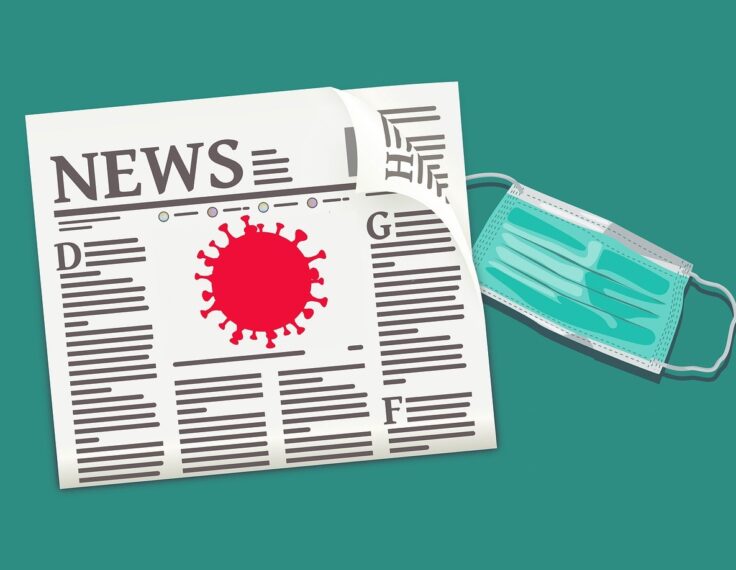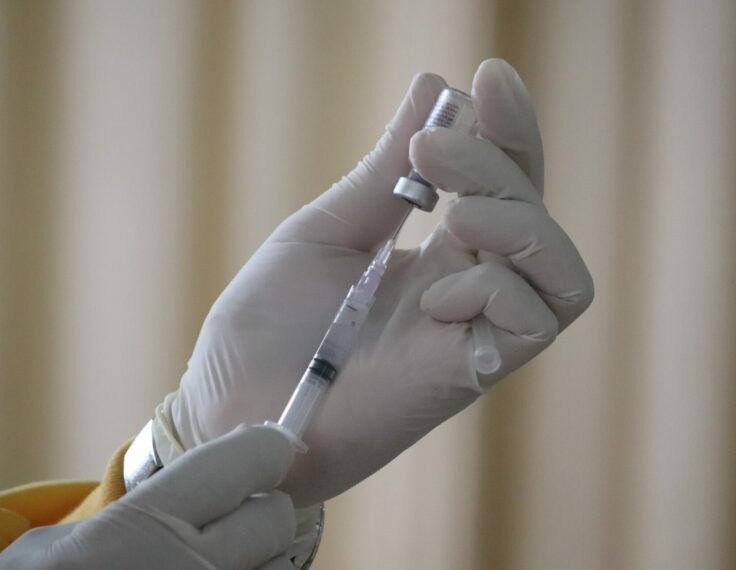Explore All Articles
All Articles
Article Topic

Attitudes towards COVID-19 vaccines may have “spilled over” to other, unrelated vaccines along party lines in the United States
Mark LaCour and Zebulon Bell
This study used data from pre- and post-COVID surveys to examine vaccine attitudes in the United States. We found evidence consistent with an ideological “spillover” effect: Liberals’ attitudes became more positive towards non-COVID vaccines (flu, MMR, HPV, chickenpox) and conservatives’ attitudes became more negative.

Exploring partisans’ biased and unreliable media consumption and their misinformed health-related beliefs
Natasha Strydhorst, Javier Morales-Riech and Asheley R. Landrum
This study explores U.S. adults’ media consumption—in terms of the average bias and reliability of the media outlets participants report referencing—and the extent to which those participants hold inaccurate beliefs about COVID-19 and vaccination. Notably, we used a novel means of capturing the (left-right) bias and reliability of audiences’ media consumption, leveraging the Ad Fontes Media ratings of 129 news sources along each dimension.

Less reliable media drive interest in anti-vaccine information
Samikshya Siwakoti, Jacob N. Shapiro and Nathan Evans
As progress on vaccine rollout in the United States slowed down in Spring 2021, it became clear that anti-vaccine information posed a public health threat. Using text data from 5,613 distinct COVID misinformation stories and 70 anti-vaccination Facebook groups, we tracked highly salient keywords regarding anti-vaccine discourse across Twitter, thousands of news websites, and the Google and Bing search engines from May through June 2021, a key period when progress on vaccinations very clearly stalled.

Clarity for friends, confusion for foes: Russian vaccine propaganda in Ukraine and Serbia
Katrina Keegan
This paper examines how Russia tailors its vaccine propaganda to hostile and friendly audiences, like Ukraine and Serbia. Web scraping of all articles about vaccines on Russian state-owned websites from December 2020 to November 2021 provided data for quantitative topic modeling and qualitative analysis.

Leveraging infodemiologists to counteract online misinformation: Experience with COVID-19 vaccines
Jack M. Gorman and David A. Scales
In the new information environment represented by the internet and social media platforms, information of public health importance is transmitted rapidly by decentralized, interpersonal networks rather than through traditional sources like public health officials or professional journalists, thus requiring a new approach to counteracting misinformation.

Vaccine hesitancy in online spaces: A scoping review of the research literature, 2000-2020
Timothy Neff, Jonas Kaiser, Irene V. Pasquetto, Dariusz Jemielniak, Dimitra Dimitrakopoulou, Siobhan Grayson, Natalie Gyenes, Paola Ricaurte, Javier Ruiz-Soler and Amy Zhang
We review 100 articles published from 2000 to early 2020 that research aspects of vaccine hesitancy in online communication spaces and identify several gaps in the literature prior to the COVID-19 pandemic. These gaps relate to five areas: disciplinary focus; specific vaccine, condition, or disease focus; stakeholders and implications; research methodology; and geographical coverage.

The battleground of COVID-19 vaccine misinformation on Facebook: Fact checkers vs. misinformation spreaders
Aimei Yang, Jieun Shin, Alvin Zhou, Ke M. Huang-Isherwood, Eugene Lee, Chuqing Dong, Hye Min Kim, Yafei Zhang, Jingyi Sun, Yiqi Li, Yuanfeixue Nan, Lichen Zhen and Wenlin Liu
Our study examines Facebook posts containing nine prominent COVID-19 vaccine misinformation topics that circulated on the platform between March 1st, 2020 and March 1st, 2021. We first identify misinformation spreaders and fact checkers,1fact checker in our study is defined as any public account (including both individual and organizational accounts) that posts factual information about COVID-19 vaccine or posts debunking information about COVID-19 vaccine misinformation.

Overcoming resistance to COVID-19 vaccine adoption: How affective dispositions shape views of science and medicine
John E. Newhagen and Erik P. Bucy
Health experts worry that a COVID-19 vaccine boycott could inhibit reaching “herd immunity,” and their concerns have only grown as the pandemic has spread. Concern has largely focused on anti-vaccine protestors, who captured headlines as they stood side by side with Tea Party activists and armed militia groups demonstrating against the quarantine in April and May of this year.

COVID-19
Not just conspiracy theories: Vaccine opponents and proponents add to the COVID-19 ‘infodemic’ on Twitter
Amelia M. Jamison, David A. Broniatowski, Mark Dredze, Anu Sangraula, Michael C. Smith and Sandra C. Quinn
In February 2020, the World Health Organization announced an ‘infodemic’—a deluge of both accurate and inaccurate health information—that accompanied the global pandemic of COVID-19 as a major challenge to effective health communication. We assessed content from the most active vaccine accounts on Twitter to understand how existing online communities contributed to the ‘infodemic’ during the early stages of the pandemic.
